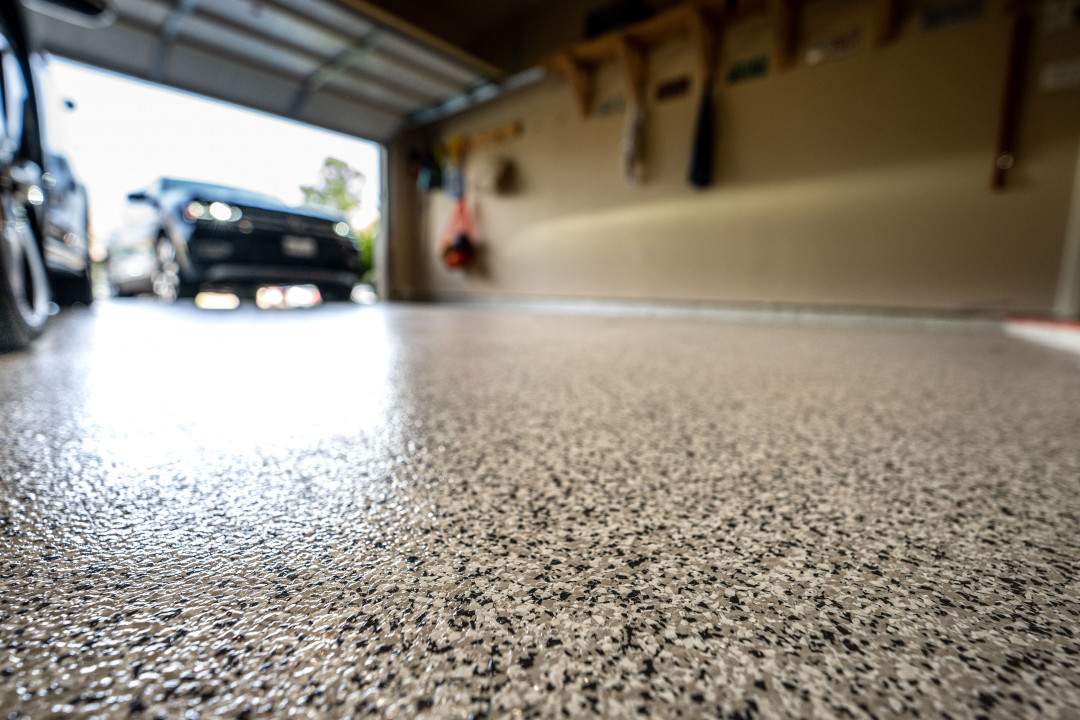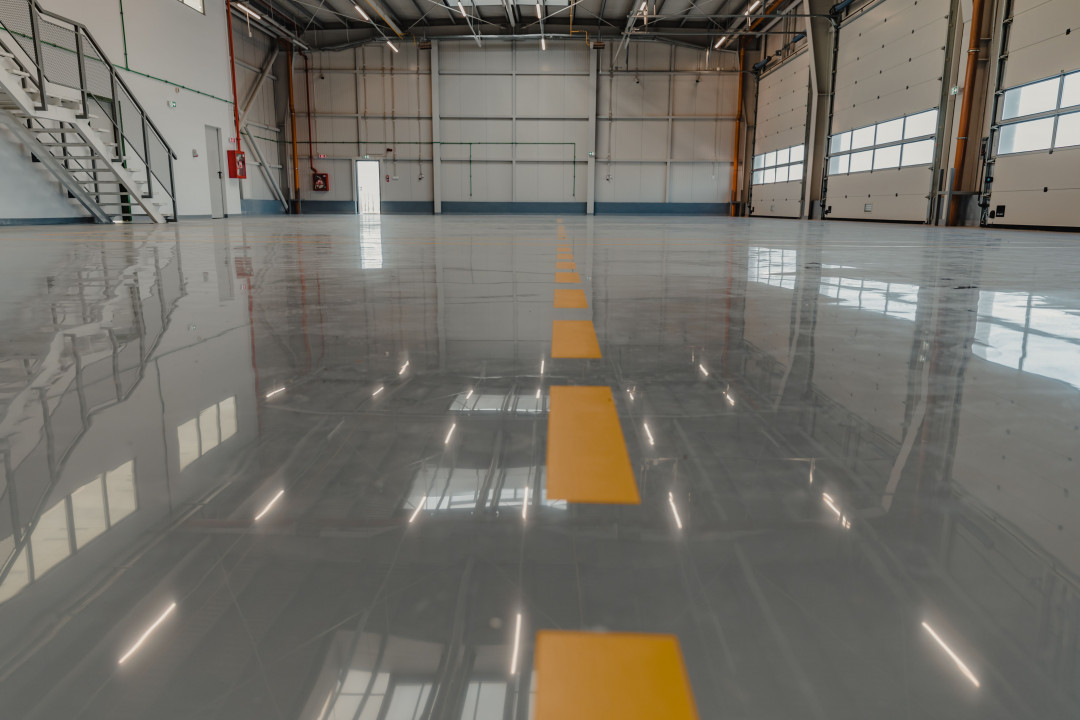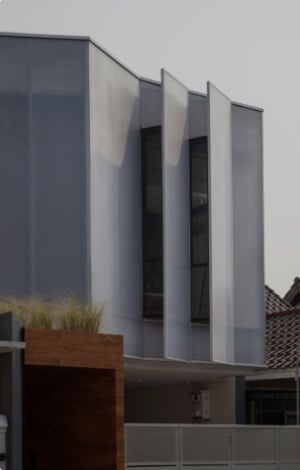Epoxy Flooring: Pros, Cons, and Everything in Between




When it comes to flooring options, epoxy flooring has been gaining popularity for its durability and versatility. But is it the right choice for your next project? We'll explore what epoxy flooring is, its advantages and disadvantages, and whether it's a cost-effective alternative to traditional options like concrete or tile. We'll also discuss the longevity of epoxy floors and how to maintain them.
What is Epoxy Flooring?
Epoxy flooring is a type of surface coating that consists of multiple layers of epoxy resin applied to a concrete substrate. It is commonly used in industrial and commercial settings due to its remarkable strength, chemical resistance, and ease of maintenance. In recent years, epoxy flooring has made its way into residential spaces as well, offering a sleek and modern aesthetic.
Benefits of Epoxy Flooring
When it comes to selecting the perfect flooring solution for your space, epoxy coatings stand out as a versatile and resilient choice. They offer a multitude of advantages that go beyond aesthetics. In this article, we will delve into the various benefits of epoxy flooring, shedding light on why it has gained popularity in residential, commercial, and industrial settings.
A. Durability and Longevity
Elevated Durability: Epoxy coatings, often used as topcoats, dramatically increase the durability of concrete floors. These coatings bond chemically with the concrete surface, creating a seamless and unyielding barrier. This robust combination is highly resistant to abrasions, impact, and wear.
Longevity Unveiled: Epoxy flooring is renowned for its impressive lifespan. Once applied correctly, it can endure for decades, even under heavy traffic conditions. This remarkable longevity not only saves money in the long run but also reduces the environmental impact of constant replacements.
B. Aesthetic Versatility
One of the remarkable features of epoxy flooring is its ability to transcend the boundaries of monotony. The spectrum of available colors and designs is nothing short of astounding. From vibrant hues to subtle shades, epoxy offers an extensive array of choices, allowing you to customize your floors to match your space's ambiance and style.
C. Chemical and Stain Resistance
Shield Against Spills: Epoxy floors have an inherent resistance to chemicals and stains, making them an excellent choice for spaces where spills are a common occurrence. These floors form a non-porous surface that repels liquids, preventing them from seeping into the concrete below.
Industrial Utility: The chemical resistance of epoxy flooring extends its suitability to various industries, including laboratories, manufacturing plants, and garages. It offers protection against corrosive substances, ensuring the longevity of both the floor and the equipment in these environments.
D. Easy Maintenance
Maintaining epoxy floors is refreshingly straightforward. Regular sweeping and occasional mopping with a mild detergent are usually all that's required to keep them looking pristine. The smooth, seamless surface leaves no room for dirt to accumulate or grime to settle in.
To maintain the glossy finish of epoxy floors, avoid harsh cleaning chemicals and opt for pH-balanced solutions. Additionally, using soft-bristle brooms and non-abrasive cleaning tools is recommended to prevent any potential surface damage.

Epoxy Flooring Installation
A. Surface Preparation
Foundation for Success: The foundation of a durable epoxy floor lies in meticulous surface preparation. This crucial step involves thorough cleaning and profiling to ensure a clean, smooth substrate. Any imperfections or contaminants must be addressed before proceeding.
The Surface Prep Process: Surface preparation typically includes activities such as shot blasting, grinding, or diamond cutting to create the ideal texture for epoxy adhesion. Additionally, any cracks or divots are filled to create a level surface, promoting a seamless finish.
B. Epoxy Application
Epoxy coatings come in various formulations tailored to specific needs. Whether it's epoxy mortar for repairing damaged floors or self-leveling epoxy for a flawlessly smooth finish, understanding the right type for your project is crucial.
Applying epoxy coatings requires precision. It involves mixing the epoxy components in the correct ratios and spreading them evenly across the prepared surface. The use of specialized tools and techniques ensures a uniform coat and minimizes the risk of imperfections.
C. Curing and Drying
After application, epoxy floors require adequate time to cure and dry. The curing process can take anywhere from a few hours to several days, depending on the type of epoxy used and environmental conditions.
To ensure a successful curing process, maintaining the right temperature and humidity levels is vital. Deviations from the recommended conditions can lead to curing issues, affecting the final appearance and durability of the floor.
D. Safety Measures
Epoxy flooring installation involves the use of chemicals and tools that carry inherent risks. Safety measures should always be a top priority. Installers should wear appropriate protective gear, including gloves, goggles, and respirators, to minimize exposure to potentially harmful substances.
Awareness of potential hazards during installation is essential. Adequate ventilation, fire safety measures, and spill containment protocols should be in place to mitigate risks and ensure a safe working environment for both installers and occupants.
Epoxy Flooring Maintenance
Epoxy flooring is renowned not only for its durability and aesthetic appeal but also for its relatively low maintenance requirements. To keep your epoxy floor looking its best and ensure its longevity, consider the following maintenance guidelines:
A. Routine Cleaning
Regular Maintenance Regimen: Establishing a routine cleaning schedule is fundamental to preserving the pristine appearance of epoxy floors. Daily or weekly sweeping with a soft-bristle broom or dust mop will prevent abrasive dirt and debris from accumulating.

How to Clean Epoxy Floors
Maintaining the pristine appearance of epoxy floors is relatively straightforward:
Regular Sweeping: Use a soft-bristle broom or dust mop to remove dirt and debris regularly.
Mild Cleaning: For routine cleaning, use a mop with a mixture of warm water and a mild, pH-balanced detergent. Avoid abrasive or acidic cleaners, as they can damage the epoxy finish.
Stain Removal: For tougher stains, such as oil or grease, use a soft cloth or sponge with a specialised epoxy floor cleaner. Follow the manufacturer's instructions.
Preventing Scratches: To prevent scratches, avoid dragging heavy furniture or sharp objects across the surface. Consider using felt pads on furniture legs.
Effective Cleaning Products: For routine cleaning, opt for pH-neutral cleaners or mild detergent solutions. These gentle cleaners effectively remove surface contaminants without compromising the epoxy's integrity. Avoid harsh chemicals that may dull the floor's luster.
Addressing Minor Damage
Scratch and Scuff Solutions: Despite its resilience, epoxy floors can develop minor scratches and scuffs over time. To address these issues, consider lightly sanding the affected area with fine-grit sandpaper. Afterward, a coat of epoxy touch-up paint can be applied to seamlessly restore the floor's appearance.
DIY Repair Methods: DIY epoxy repair kits are readily available and can be effective for addressing small damages. These kits typically include epoxy resin and hardener, making it convenient to patch up minor imperfections.
Professional Maintenance
Periodic Professional Assessment: Periodic professional maintenance is essential for assessing the overall condition of your epoxy floor. Professionals can identify potential issues early, preventing them from becoming major problems.
Services Offered: Epoxy floor professionals offer a range of services, including deep cleaning, resealing, and repairs. They can also assess the epoxy's slip resistance and recommend appropriate measures to maintain safety.
Considerations When Choosing Epoxy Flooring
Selecting the right epoxy flooring system is a crucial decision that hinges on several key considerations. Here are some factors to weigh when choosing epoxy flooring for your space:
A. Type of Space
The type of epoxy system you choose should align with the specific requirements of your space. Consider whether it's a residential, commercial, or industrial setting, and factor in variables such as foot traffic, heavy machinery, or exposure to chemicals.
In industrial settings, prioritize epoxy flooring systems with enhanced slip resistance and chemical resistance to ensure the safety of workers.
B. Budget and Cost Factors
Epoxy flooring costs can vary widely depending on factors like the type of epoxy, square footage, and surface preparation requirements. Be prepared to budget accordingly.
While epoxy flooring may have initial installation costs, it often provides long-term savings due to its durability and low maintenance needs. Consider it as an investment in the longevity of your floor.
C. Design and Aesthetics
Epoxy flooring offers an extensive range of design possibilities. Choose colours and patterns that complement the overall aesthetics of your space. In commercial settings, you can even incorporate logos or branding elements.
Explore the customization options available, such as metallic epoxy finishes or decorative flakes, to add a unique touch to your floor.
D. Professional Installation
The expertise of the installers can significantly impact the quality of your epoxy floor. Ensure that you hire experienced professionals who understand the intricacies of surface preparation, epoxy mixing, and application.
Professional installation not only guarantees a flawless finish but also often comes with warranties, providing peace of mind regarding the longevity and performance of your epoxy floor.
The Disadvantages of Epoxy Flooring
Before deciding on epoxy flooring, it's essential to be aware of its disadvantages:
- Installation Complexity: Epoxy flooring requires proper surface preparation, including cleaning, repairing cracks, and ensuring a dust-free environment. This process can be time-consuming and may require professional installation.
- Limited Aesthetic Options: While epoxy floors come in various colours and patterns, they may not offer the same design versatility as some other flooring options, such as hardwood or custom tile.
- Slippery When Wet: Epoxy floors can become slippery when wet, posing a safety hazard in areas prone to spills. Adding anti-slip additives or selecting a textured finish can mitigate this issue.
- Susceptible to Damage: Despite their durability, epoxy floors can be scratched or damaged by heavy objects or dropped tools. This is especially true in high-traffic areas.
Is Epoxy Flooring a Good Idea?
- Epoxy flooring can be an excellent choice for many applications, depending on your needs and preferences. Here are some scenarios where epoxy flooring is a good idea:
- Garages: Epoxy floors are a popular choice for garages due to their resistance to automotive fluids and their ability to create a clean and attractive workspace.
- Commercial Spaces: Epoxy flooring is often used in commercial settings like warehouses, retail stores, and restaurants, where durability and easy maintenance are crucial.
- Industrial Facilities: Industries requiring high chemical resistance, such as manufacturing plants and laboratories, benefit from epoxy flooring's robust properties.
- Showrooms: Epoxy floors provide an elegant, glossy finish that can enhance the presentation of products in showrooms.
Is Epoxy Flooring Better Than Concrete?
Comparing epoxy flooring to concrete is not entirely straightforward because epoxy is often applied over concrete. The choice between the two depends on the intended use and desired characteristics. Here are some key differences:
Durability: Epoxy flooring is more durable and resistant to wear, chemicals, and stains compared to bare concrete.
Aesthetics: Epoxy floors offer a more polished and visually appealing appearance, while concrete can be plain and utilitarian.
Maintenance: Epoxy floors are easier to clean and maintain than concrete, which can be porous and susceptible to stains.
Cost: Epoxy flooring may be more expensive upfront due to installation costs, but it can save money in the long run due to reduced maintenance and longer lifespan.
Is Epoxy Flooring Cheaper Than Tile?
Comparing the cost of epoxy flooring to tile is another common consideration. Epoxy flooring can be cost-effective in some scenarios, but it depends on several factors, including the type of tile and the installation complexity. Generally, epoxy flooring tends to be more budget-friendly than high-end tiles like natural stone or intricate ceramic designs. However, it's essential to obtain quotes and consider long-term maintenance costs before making a decision.
How Long Will Epoxy Floors Last?
When properly installed and maintained, epoxy floors can last for many years. In a residential setting with moderate foot traffic, they can endure for 10-20 years or more. In commercial or industrial environments, where they may face harsher conditions, their lifespan might be slightly shorter. Regular maintenance, such as resealing or reapplying a topcoat, can extend their longevity.
Conclusion
Epoxy flooring offers a robust and visually appealing option for a variety of spaces. While it has some disadvantages, its durability, ease of maintenance, and aesthetic appeal make it a practical choice for many applications. When deciding whether epoxy flooring is the right choice for you, consider your specific needs, budget, and long-term maintenance preferences.




 Indonesia
Indonesia
 New Zealand
New Zealand
 Philippines
Philippines
 Hongkong
Hongkong
 Singapore
Singapore
 Malaysia
Malaysia







